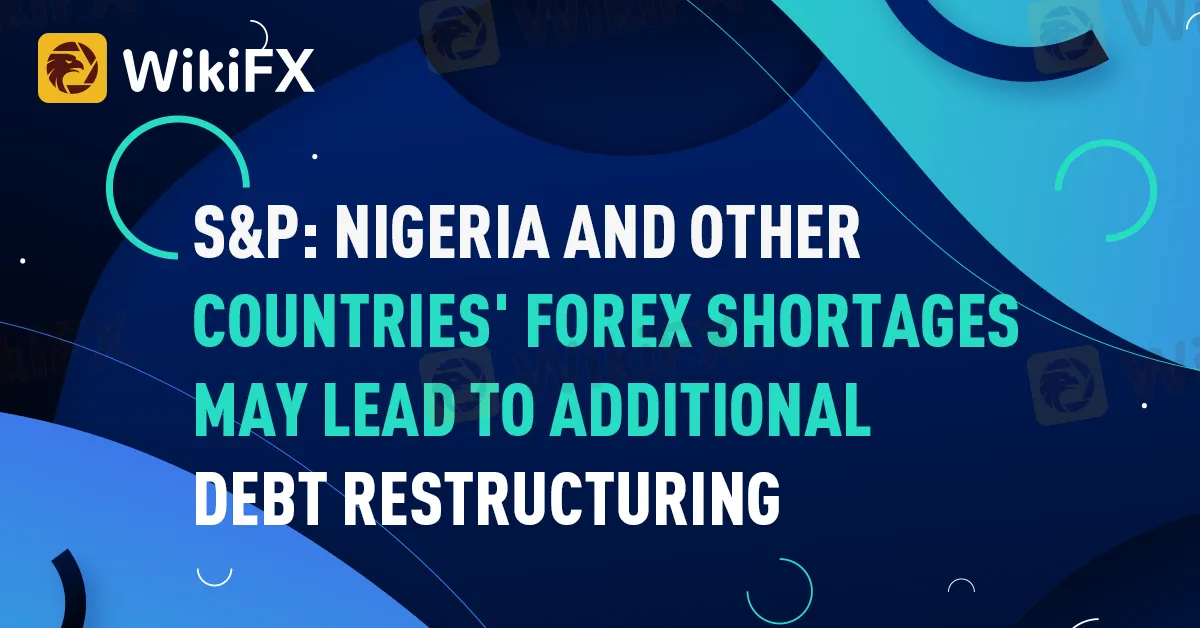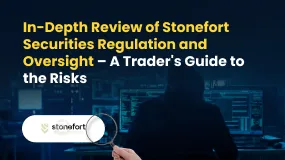简体中文
繁體中文
English
Pусский
日本語
ภาษาไทย
Tiếng Việt
Bahasa Indonesia
Español
हिन्दी
Filippiiniläinen
Français
Deutsch
Português
Türkçe
한국어
العربية
S&P: NIGERIA AND OTHER COUNTRIES' FOREX SHORTAGES MAY LEAD TO ADDITIONAL DEBT RESTRUCTURING
Abstract:According to S&P Global Market Intelligence, currency shortages in Africa continue to be under pressure from rising import prices and increased debt.

According to S&P Global Market Intelligence, currency shortages in Africa continue to be under pressure from rising import prices and increased debt.
Over the weekend, S&P claimed that problems with forex depletion were limiting the ability of African nations to pay back their debts, and it added that sub-Saharan Africa (SSA) were likely to seek debt restructuring as a result of potentially stricter capital controls.
According to the research organization, “SSA currencies stay weak against the US dollar over the second half of 2022, and pressure on terms of trade will only start to fade in early 2023.”
The Foreign Monetary Fund's (IMF) increased Special Drawings Right (SDR) allotment during August 2021, which was added to their official international reserves, was said to have helped all nations.
“We see that an expansion of current-account deficits will deteriorate SSA forex buffers in the near future,” the authors write. This is due to factors such a sharper-than-projected downturn in global economy and reduction of trade flows, high debt and a larger import cost.
The paper noted that Nigeria, the largest oil producer in SSA, fell short of strengthening its foreign reserve position in 2022.
It said, Any meaningful effort to relieve FX shortages will be hampered by political uncertainty given the forthcoming presidential election in February 2023.
It continued by saying that the outlook was affected by a number of variables, including changes in portfolio movement, modifications to foreign reserve balances, and inflation differentials.
The report stated that weaker currencies that may theoretically allow SSA economies' exports to gain market share and hence improve forex reserves have so far been overshadowed by a higher import bill as a result of high global oil and food costs.
It was said that there have recently been concerns about FX shortages due costs for currency suppliers and larger economic liquidity issues.
One of the main explanations was weaker growth in the eurozone, which is Mauritius's largest source of tourists.
S&P highlighted that weaker Foreign Direct Investment Inflows (FDI) have caused concern over adequate forex reserves in Kenya. The Kenyan government has implemented stronger capital controls to prevent the repatriation of foreign cash, even though the nation's central bank believes they are still at appropriate levels.
It emphasized that during the first two quarters of 2022, FDI inflows to Angola that were not related to oil fell to their lowest level since 2012.
Even if the trade balance has improved, the economy has been coping with a weakening in FX holdings, which has caused a change in the capital restrictions policy.
The decline in FX was mostly caused by increased debt service from mainland Chinese banks terminate as a result of rising oil prices. In comparison to December 2021, Angola's foreign debt to mainland China decreased by $350.8 million in the first quarter of 2022.
S&P noted that Ethiopia, which is renowned for its protracted low import coverage, continues to be at a high risk of not having enough external debt repayment capability due to its severely low levels affected by the military conflict in the country's north.
This would make it more difficult for Ethiopia to make future interest payments, such the $33 million Eurobond coupon payment due on December 11. It was stated that for Mozambique, there were signs that decreasing gas prices and budgetary slippage would raise the likelihood that the nation will require more debt restructuring starting in 2024.
The report noted that since interest rates have risen and the Eurobond markets have remained inaccessible, the likelihood that Ghana may restructure its debt has increased

Disclaimer:
The views in this article only represent the author's personal views, and do not constitute investment advice on this platform. This platform does not guarantee the accuracy, completeness and timeliness of the information in the article, and will not be liable for any loss caused by the use of or reliance on the information in the article.
Read more

E TRADE Review: Traders Report Tax on Withdrawals, Poor Customer Service & Fund Scams
Has your E Trade forex trading account been charged a withholding tax fee? Did your account get blocked because of multiple deposits? Did you have to constantly call the officials to unblock your account? Failed to open a premium savings account despite submitting multiple documents? Is fund transfer too much of a hassle at E Trade? Did you find the E Trade customer support service not helpful? In this E Trade review article, we have shared certain complaints. Take a look!

mBank Exposed: Top Reasons Why Customers are Giving Thumbs Down to This Bank
Do you find mBank services too slow or unresponsive? Do you find your account getting blocked? Failing to access your account online due to several systemic glitches? Can’t perform the transactions on the mBank app? Do you also witness inappropriate stop-level trade execution by the financial services provider? You are not alone! Frustrated by these unfortunate circumstances, many of its clients have shared negative mBank reviews online. In this article, we have shared some of the reviews. Read on!

In-Depth Uniglobe Markets Commission Fees and Spreads Analysis – What Traders Should Really Know
For experienced traders, the cost of execution is a critical factor in broker selection. Low spreads, fair commissions, and transparent pricing can be the difference between a profitable and a losing strategy over the long term. This has led many to scrutinize the offerings of brokers like Uniglobe Markets, which presents a tiered account structure promising competitive conditions. However, a professional evaluation demands more than a surface-level look at marketing claims. It requires a deep, data-driven analysis of the real trading costs, set against the backdrop of the broker's operational integrity and safety. This comprehensive Uniglobe Markets commission fees and spreads analysis will deconstruct the broker's pricing model, examining its account types, typical spreads, commission policies, and potential ancillary costs. Using data primarily sourced from the global broker inquiry platform WikiFX, we will provide a clear-eyed view of the Uniglobe Markets spreads commissions prici

In-Depth Review of Stonefort Securities Regulation and Oversight – A Trader's Guide to the Risks
For experienced traders, the process of selecting a new broker transcends a simple comparison of spreads and leverage. It is a meticulous due diligence exercise where the integrity of the broker's regulatory framework is paramount. Stonefort Securities, a relatively new entrant in the crowded brokerage space, presents a complex and often contradictory profile. On one hand, it boasts a modern MT5 platform and a stream of positive user testimonials. On the other hand, it is shadowed by severe regulatory warnings that question the very foundation of its operations. This in-depth review focuses on the core issue for any long-term trader: Stonefort Securities regulation and oversight. We will dissect the broker's corporate structure, scrutinize its licensing claims, and analyze what the data implies for trader protection and fund security. For traders evaluating whether Stonefort Securities is a trustworthy partner, understanding these details is not just important—it is essential.
WikiFX Broker
Latest News
WikiFX's New Evaluation of ATM Capital LTD: Does its License Protect the Arab Investor?
How a Fake Moomoo Ad Led to the “New Dream Voyage 5” Scam
Is Axi Legit? A Data-Driven Analysis of Its Regulatory Standing and Trader Feedback
Trive Investigation: High Score, Hidden Risk - The Profit Paradox
In-Depth Uniglobe Markets Commission Fees and Spreads Analysis – What Traders Should Really Know
FXPesa Review: Are Traders Facing High Slippage, Fund Losses & Withdrawal Denials?
CMC Markets Australia Revenue Surges 34%, But High-Net-Worth Clients Face Tax Phishing Threat
Bessent believes there won't be a recession in 2026 but says some sectors are challenged
mBank Exposed: Top Reasons Why Customers are Giving Thumbs Down to This Bank
Young Singaporean Trader Grew USD 52 into a USD 107,700 Portfolio
Currency Calculator



